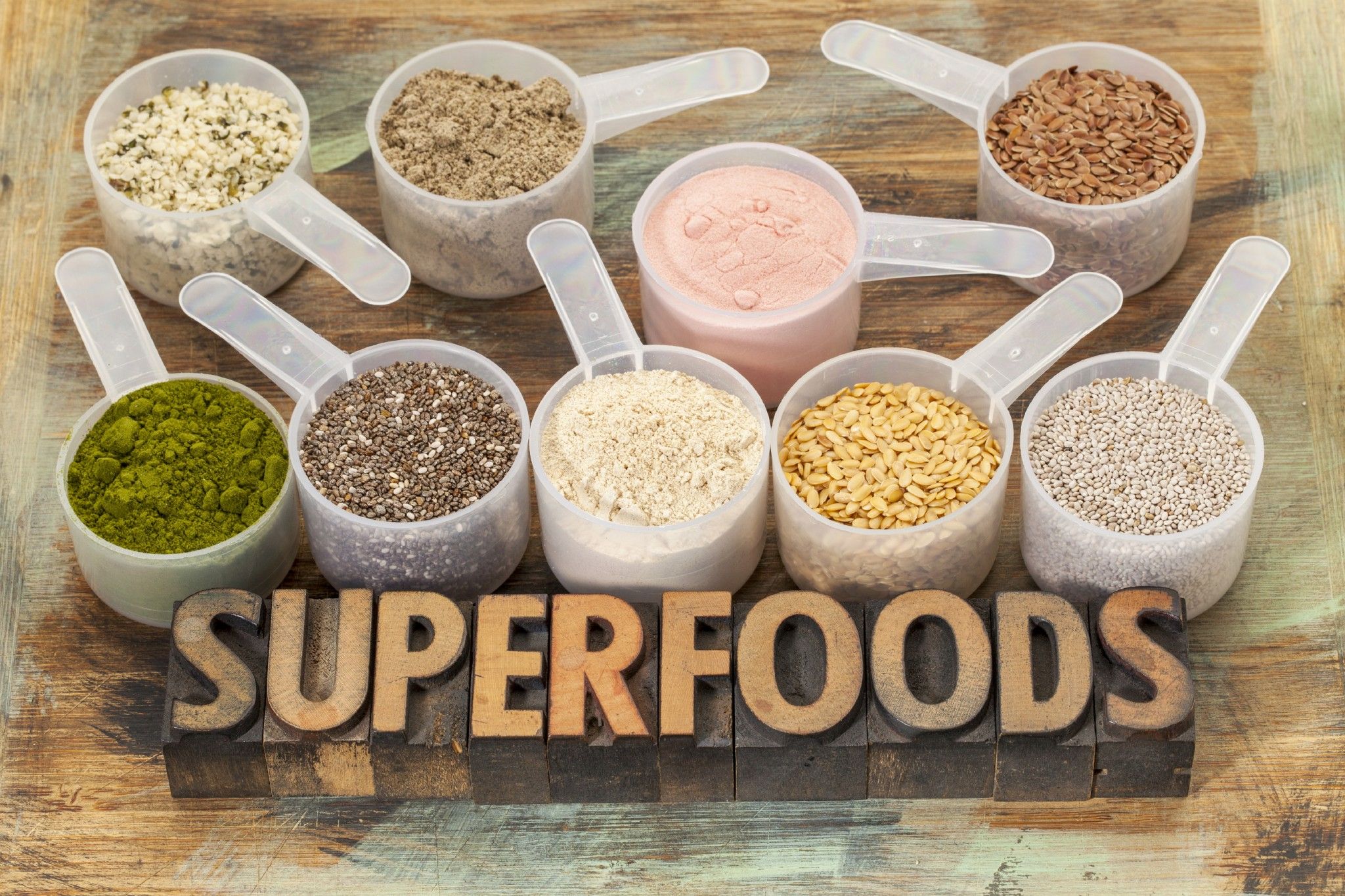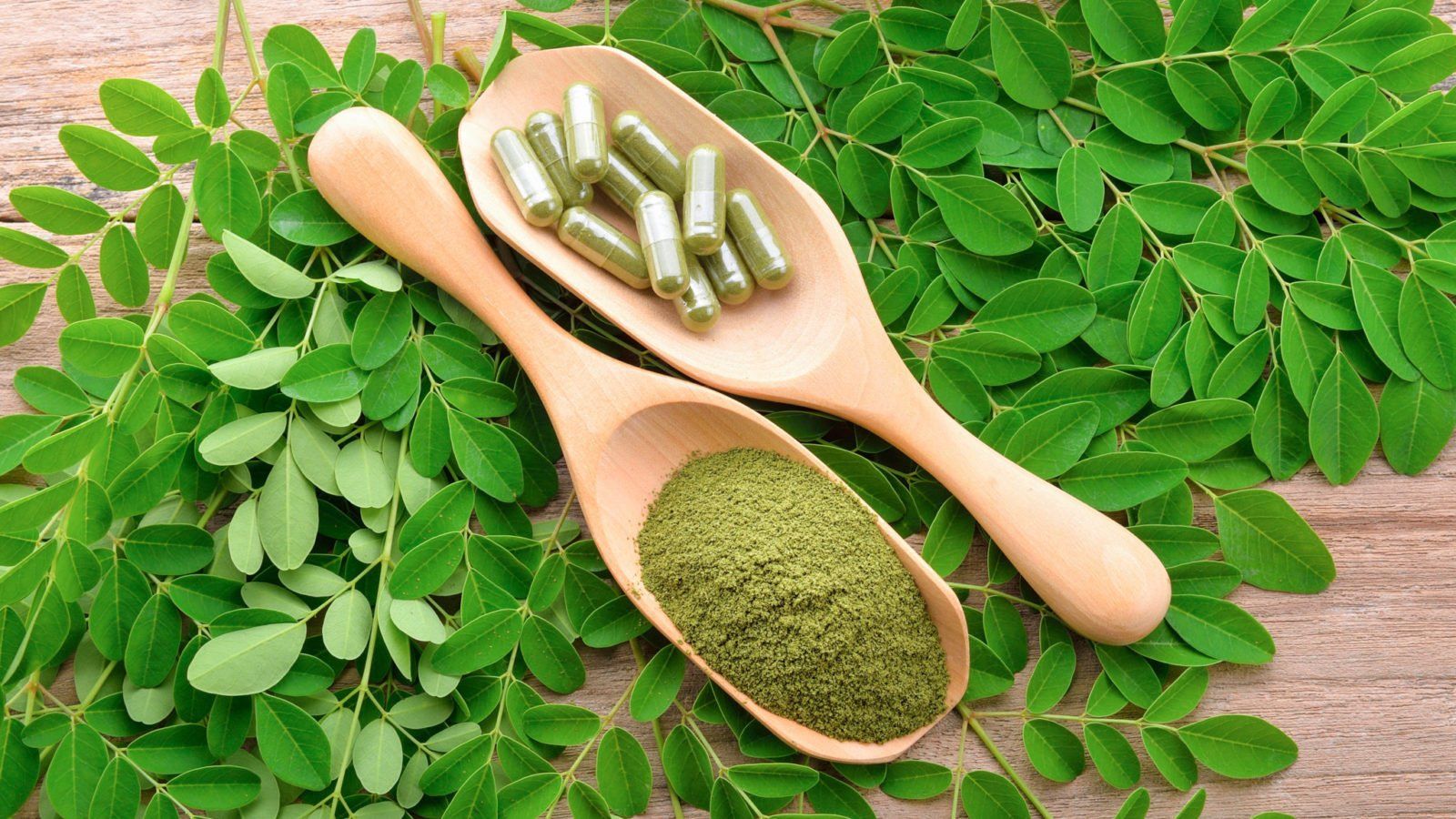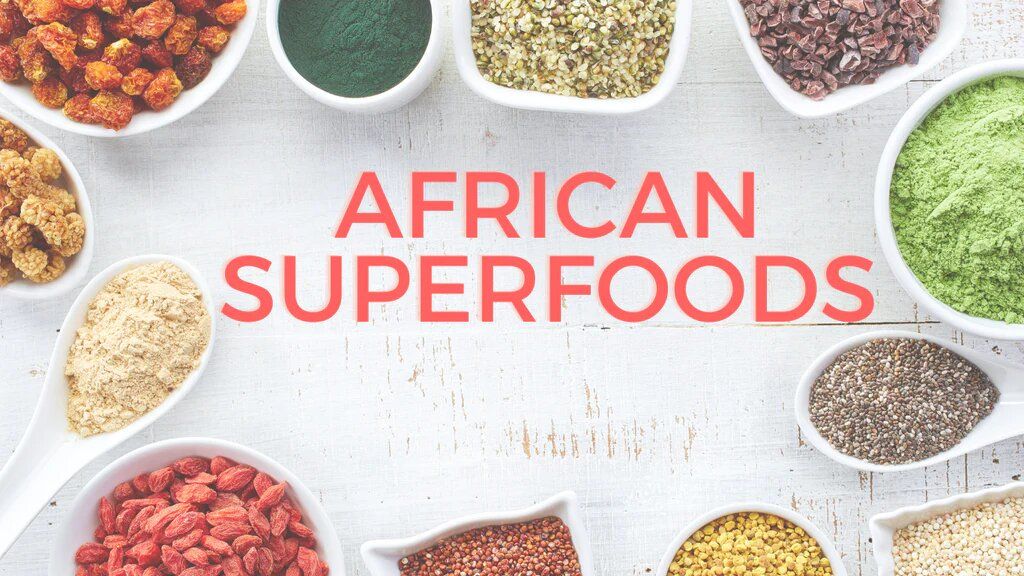Beyond the Spice: 10 Iconic Super Food Of Eastern Cuisine
Eastern cuisine a treasure trove of flavors and nutritional gems has fascinated food enthusiasts and health-conscious individuals worldwide. Beyond the tantalizing spices and rich culinary traditions lies a collection of superfoods that have been harnessed for their exceptional health benefits for centuries. These iconic superfoods integral to Eastern culinary traditions not only offer a burst of flavor but also boast a plethora of health benefits that modern science is just beginning to understand. Let's embark on a gastronomic journey to explore 10 iconic superfoods of Eastern cuisine that promise to tantalize your taste buds and nourish your body.
Beets
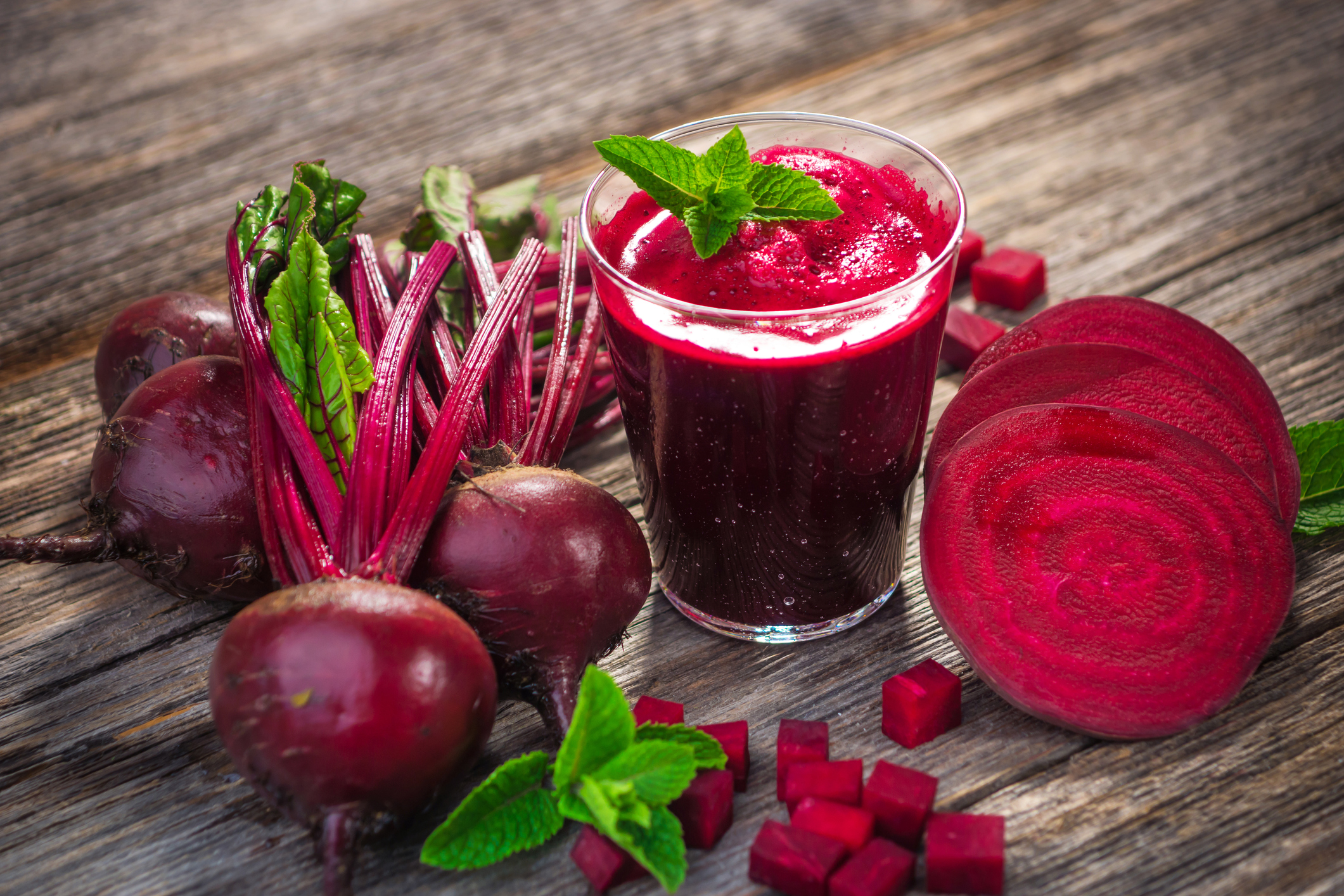
Beets are a powerhouse of nutrition and are definitely worth adding to your meals in 2023. Not only are they low in calories but they're also rich in fiber which helps regulate blood sugar levels and supports digestion. Additionally beets possess anti-inflammatory properties according to nutrition expert Golub. Their exceptional nutritional profile makes beets an unbeatable superfood.
- A note from a Registered Dietitian Nutritionist: While fresh juice is a good source of micronutrients it lacks the fiber found in whole fruits and vegetables. Golub advises that it's best to consume fruits and vegetables in their whole form rather than juiced for optimal health benefits.
- How to consume: Beets are incredibly versatile; enjoy them raw roasted boiled steamed or juiced. Golub suggests enhancing an arugula salad with sweet beets and creamy goat cheese crumbles for a delicious meal.
Flaxseeds
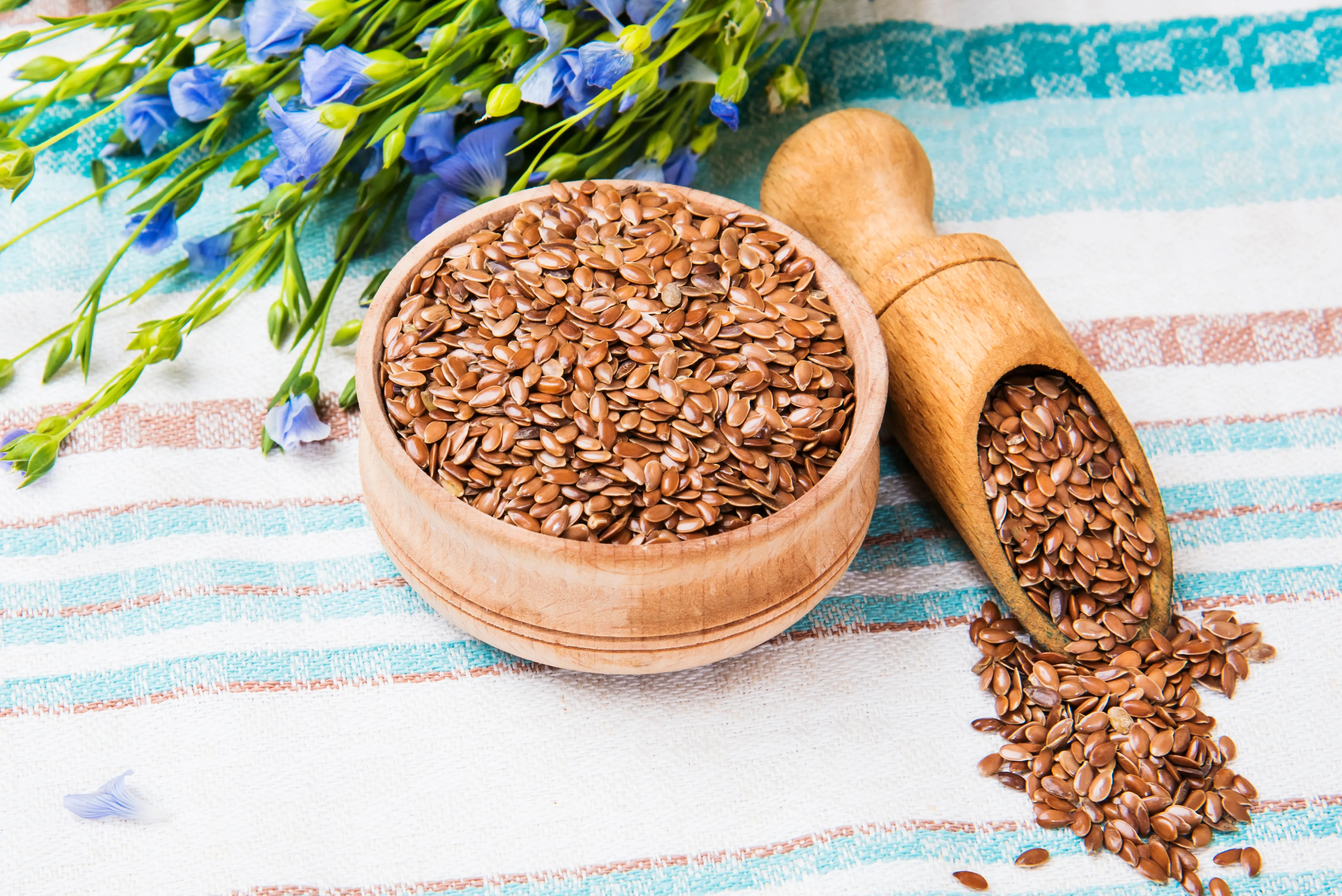
Flaxseeds are set to become a major food trend surpassing even avocado toast thanks to their rich nutritional content including fiber antioxidants and omega-3 fatty acids that benefit heart health. Golub highlights their potential to enhance your meals with both health and taste.
- How to consume: Flaxseeds are perfect for breakfast. Add them to overnight oats smoothies yogurt or oatmeal for extra texture or incorporate them into baked goods for a nutritious twist on your favorite recipes.
Fennel
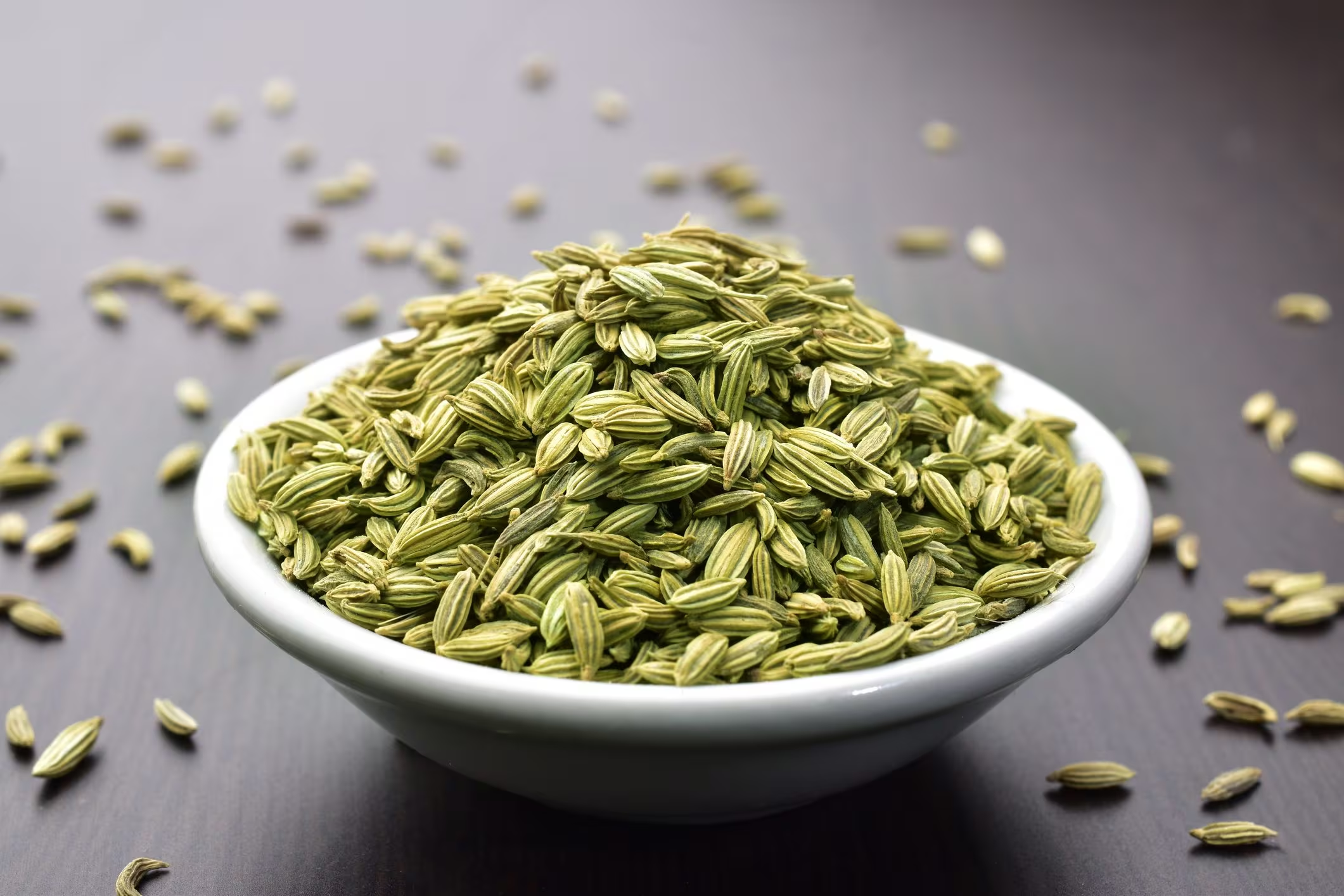
Fennel is an exceptional vegetable known for its myriad health benefits including reducing gastrointestinal issues easing indigestion improving memory and possessing anti-inflammatory properties. Bridgette Becker a Functional Nutritionist and Holistic Health Practitioner notes its anxiolytic effects which help reduce anxiety and sleep disorders in addition to supporting hormonal balance and sexual function.
- How to consume: Fennel bulbs are a versatile addition to any meal perfect for sautéing roasting or steaming. Fennel tea is also gaining popularity as a healthy beverage choice.
Microgreens

Microgreens the young versions of vegetables are proof that size isn't everything. These small but nutrient-dense plants can enhance any dish visually and nutritionally. Growing microgreens is an easy and dirt-free way to garden indoors according to Golub.
- How to consume: Microgreens are not just for show; they add a delightful taste to meals. Try incorporating them into wraps or omelets for an extra vitamin boost.
Basil

Basil is set to become a favorite herb this year celebrated for its anti-inflammatory properties and benefits to respiratory and immune health lung capacity stress relief memory improvement and mood enhancement.
- How to consume: Add a sophisticated touch to your hydration routine with basil leaves and lemon in ice water. Basil can also elevate the flavor of soups dressings and sauces making your meals both tasty and nutritious.
Lemnaceae
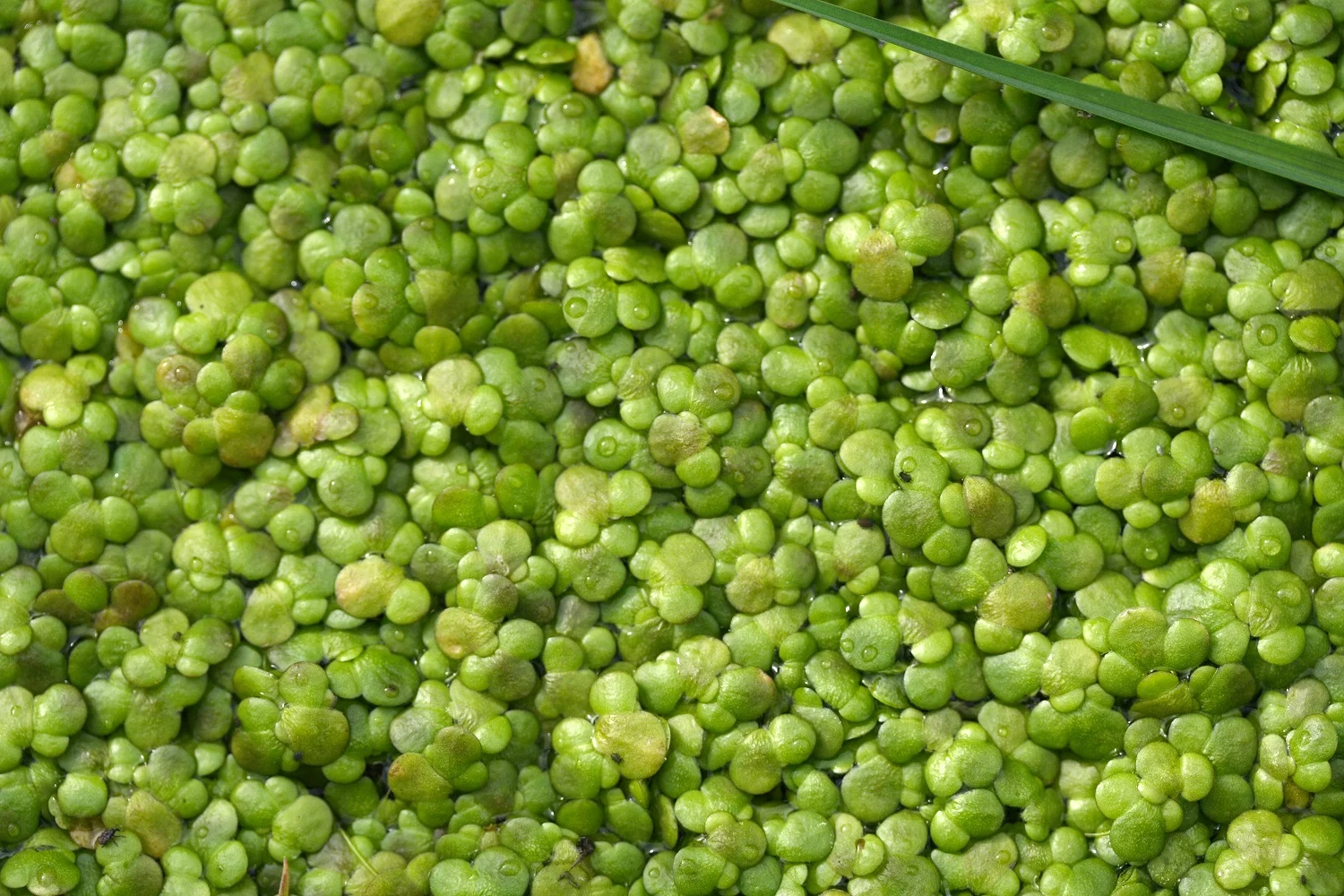
Before speaking with Deane Falcone Chief Scientific Officer at Crop One Holdings Lemnaceae (also known as duckweed) was unfamiliar territory for me. Yet this family of aquatic plants is on the brink of making a significant impact especially with its protein-rich composition that rivals soy protein. Its popularity in Southeast Asia might soon extend to the U.S. suggesting duckweed could become a staple in our diets.
- How to consume: While Lemnaceae might not be readily available in mainstream markets yet incorporating duckweed powder into your morning smoothie could provide a substantial nutritional boost. However it's crucial to source it properly to avoid health risks associated with untreated water sources.
Tiger Nuts
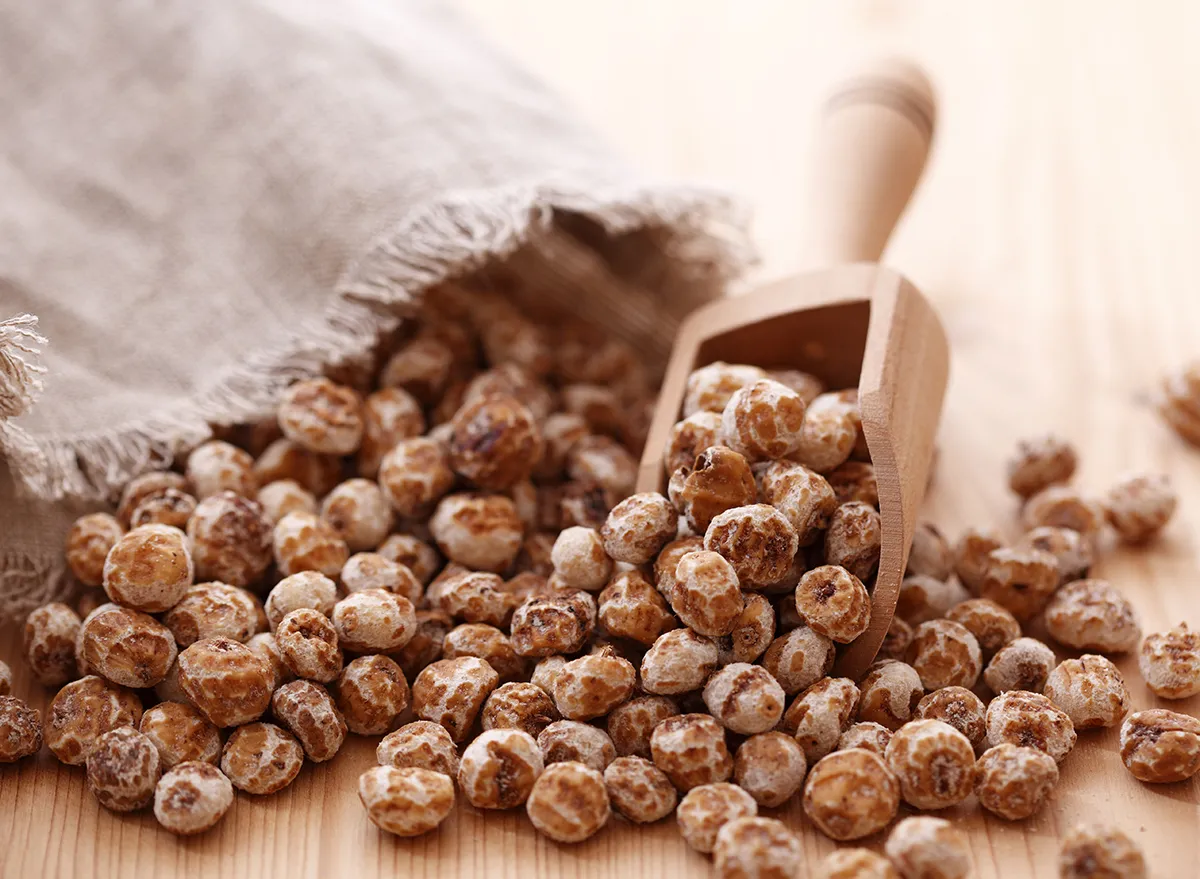
Tiger nuts despite their name are tubers that pack a nutritional punch with benefits including enhanced satiety blood sugar regulation and a supply of potassium vitamin C magnesium and plant-based protein.
- How to consume: Tiger nuts can be a fantastic addition to vegan diets either chopped up in salads for a crunchy texture or used as an alternative to milk or flour. However those with sensitive digestive systems should approach with caution due to their high fiber content.
Extra Virgin Olive Oil
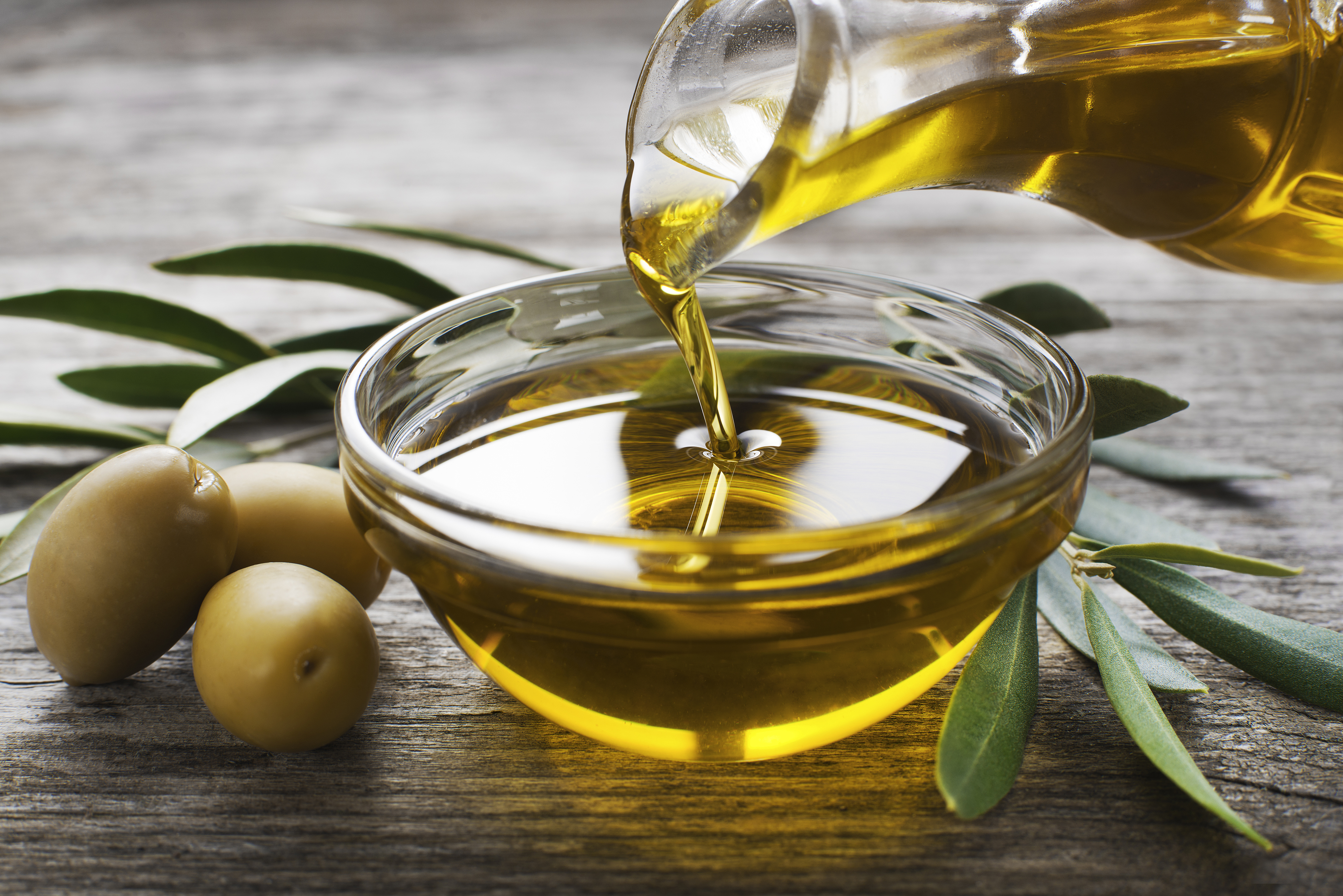
Extra virgin olive oil (EVOO) is shedding its unfounded negative reputation with experts like Golub highlighting its role as a heart-healthy fat. EVOO is rich in antioxidants contributing to lower heart disease risks and protecting cells from damage.
- How to consume: Incorporating EVOO into your diet is simple whether for sautéing vegetables enhancing dips or as a salad dressing component making it a versatile and beneficial addition to meals.
Tsukemono
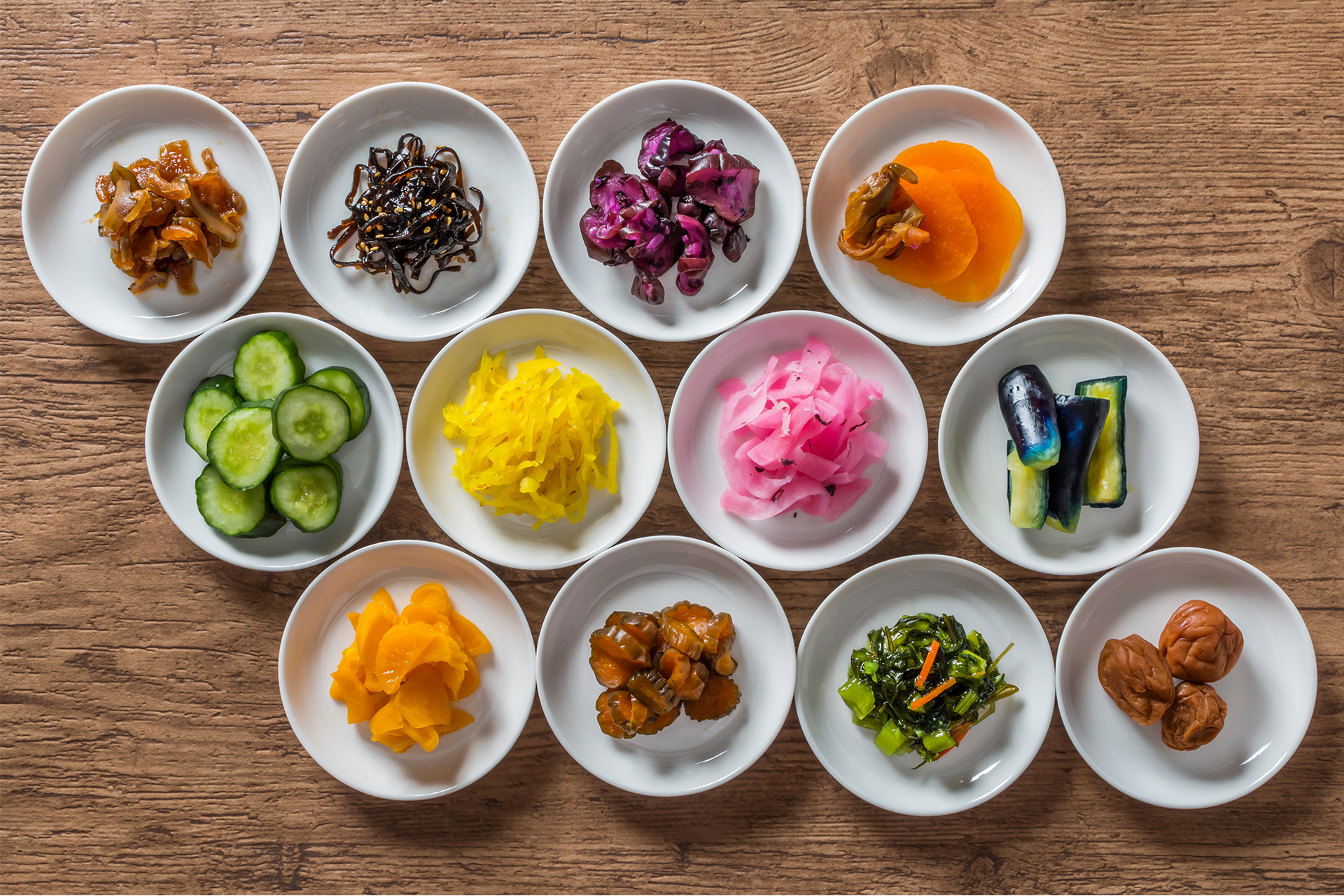
Tsukemono or pickled vegetables are a staple in Japanese cuisine known for their health benefits including digestive aid and immune system support. They are a rich source of potassium and fiber with varieties like umeboshi (pickled plum) recognized for their digestive benefits.
- How to consume: Tsukemono can be enjoyed as a condiment or side dish with almost any meal. Try adding them to your rice dishes sandwiches or as a refreshing palate cleanser between sushi servings. They're not only flavorful but also beneficial for gut health.
Daikon
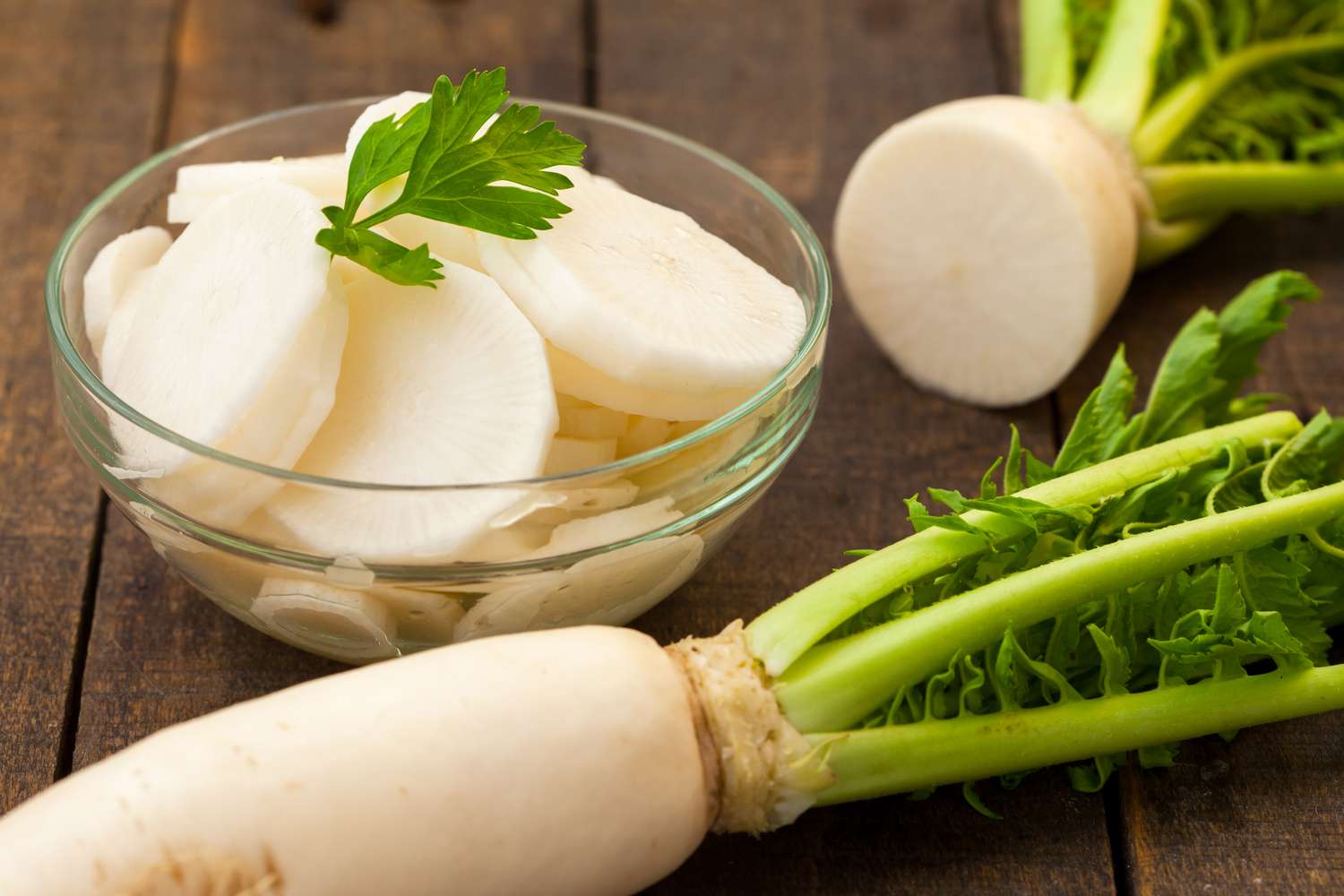
Daikon a type of Japanese radish is low in calories but high in vitamin C and folate making it beneficial for weight management and immune system support. It's versatile in cooking easily incorporated into dishes ranging from raw salads to hearty curries.
- How to consume: Daikon can be enjoyed in various forms - raw in salads grated as a garnish or cooked in dishes like soups and curries. Its mild flavor and crisp texture make it an excellent addition to a wide range of recipes offering both nutritional benefits and a refreshing taste.
Why There Is A Buzz About Superfoods and Are They Really Essential?
The buzz around superfoods stems from their nutrient-dense profiles offering a concentrated source of vitamins minerals antioxidants and other health-promoting compounds. In a world where diets often fall short of essential nutrients integrating superfoods can provide an easy and effective way to boost health and well-being. While no single food can provide all the answers to health incorporating a variety of these superfoods into a balanced diet can significantly contribute to overall health and longevity.
- Nutrient Density: Superfoods are celebrated for their high nutrient density. They are packed with vitamins minerals antioxidants and other health-promoting compounds that are essential for maintaining and improving health. This makes them an excellent addition to any diet.
- Antioxidant Properties: Many superfoods contain high levels of antioxidants which help protect the body from damage by free radicals. This can reduce the risk of chronic diseases such as heart disease cancer and diabetes.
- Support for Overall Well-being: Regular consumption of superfoods can support overall well-being. Their nutrient-rich profiles contribute to improved immune function enhanced digestion better heart health and may even help in managing weight.
- Culinary Diversity: Superfoods add diversity to meals with their unique flavors and textures. Incorporating them into the diet encourages culinary exploration and introduces individuals to new healthy eating options.
- Cultural and Traditional Significance: Many superfoods have been used for centuries in their respective cultures for their health benefits. Their inclusion in modern diets respects and revives these ancient culinary traditions.
- Scientific Interest and Research: The growing body of scientific research investigating the health benefits of superfoods has contributed to their popularity. As more is understood about how these foods impact health interest in them continues to grow.
- Modern Dietary Needs: With the rise of processed foods and lifestyles that may contribute to nutrient deficiencies superfoods offer a natural way to supplement diets with essential nutrients helping to fill nutritional gaps.
- Health and Wellness Trends: The increasing focus on health wellness and natural foods in recent years has propelled superfoods into the spotlight. They are often associated with health-conscious lifestyles and preventive healthcare.
- Are They Really Essential?: While no single food is a magic bullet for health incorporating a variety of superfoods into a balanced diet can significantly contribute to overall health and vitality. They are not essential per se but they can be a powerful tool in enhancing nutritional intake and supporting a healthy lifestyle.
- Balance and Moderation: It’s important to remember that a balanced diet that includes a wide range of nutrients from various food sources is crucial for health. Superfoods can complement such a diet but should not replace other nutritious foods.
Conclusion
Eastern cuisine offers more than just a feast for the senses; it presents a rich palette of superfoods that carry centuries-old wisdom and the promise of health benefits backed by modern science. From the antioxidant-rich matcha to the probiotic-packed kimchi these iconic superfoods embody the essence of culinary traditions that have nurtured generations. Embracing these foods into your diet not only enriches your culinary experience but also fortifies your health journey. As we continue to explore the vast and vibrant world of superfoods let's remember that the key to harnessing their full potential lies in diversity and balance allowing us to savor the flavors of the East and nourish our bodies in the most delicious way possible.

